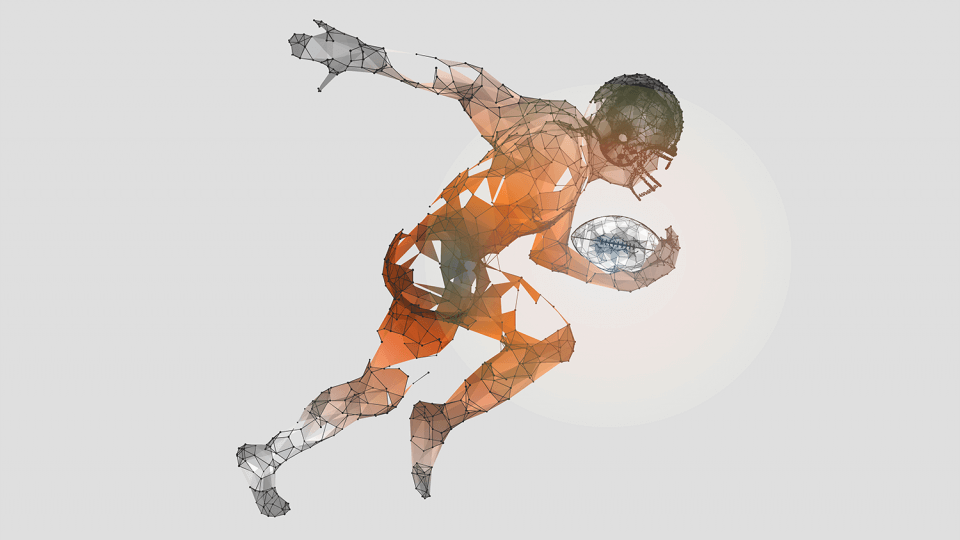The Indiana Supreme Court ruled that fantasy sports operators can use athletes’ names, pictures, and statistics without the athletes’ consent, providing a major win for the fantasy sports industry. The Court concluded that “Indiana’s right of publicity statute contains an exception for material with newsworthy value that includes online fantasy sports operators’ use of college players’ [[information]].” This conclusion allows operators to continue using players’ names, pictures, and statistics in fantasy sports competitions.
The case began when a group of former college football players filed a lawsuit against two fantasy sports operators alleging that the companies are violating athletes’ right of publicity under Indiana law by using players’ names and likenesses while operating and promoting fantasy sports contests without the players’ consent. The district court dismissed the suit. The plaintiffs then appealed to the Seventh Circuit. On appeal, that court recognized that Indiana law would determine the outcome and, because Indiana law is unclear, used a procedure to ask the Indiana Supreme Court to weigh in. The Seventh Circuit asked the Indiana Supreme Court whether, under Indiana law, fantasy sports operators must get players’ consent to use their names, pictures, or statistics in fantasy sports contests and advertisements for those contests. The Indiana Supreme Court concluded that consent is unnecessary in this context.
Indiana’s right of publicity statute prohibits using a person’s name, photograph, image, and likeness, among other property interests, for a commercial purpose without obtaining consent. There are exceptions, one of which allows use when it has “newsworthy value.” Explaining that newsworthiness should be construed broadly, the Court concluded that using players’ names, images, and statistics to conduct fantasy sports competitions “bears resemblance to the publication of the same information in newspapers and websites across the nation.” According to the Court, “this information is not stripped of its newsworthy value simply because it is placed behind a paywall or used in the context of a fantasy sports game.” The opinion clarifies that the newsworthiness exception applies to commercial uses and is available to companies that are not media companies or news broadcasters.
The Court then turned to the question of whether the newsworthy use could lead to a risk of unauthorized advertising. It held that the risk of unauthorized advertising is minimal in reporting the results of fantasy sports contests. The Court concluded that presenting informational and statistical data pertaining to college athletes on a fantasy sports websites does not lead to the conclusion that the athletes are endorsing any particular product or contest. The Court’s opinion joins all unanimous previous precedent that the use of athletes’ statistics and likenesses in a fantasy sports context does not implicate their right of publicity.
“…fantasy sports companies should heed its warning and carefully review their promotional efforts to ensure that they do not use a player’s name or picture to suggest that the player sponsors or endorses the competition or operator.”
The Court, however, left open the possibility that fantasy sports operators could be held liable for unauthorized endorsements if their use went beyond simply operating contests. The Court declined to examine this issue closely, but fantasy sports companies should heed its warning and carefully review their promotional efforts to ensure that they do not use a player’s name or picture to suggest that the player sponsors or endorses the competition or operator. The Indiana Supreme Court’s opinion does not foreclose other courts from reaching contrary conclusions when interpreting right of publicity claims in other states or related federal laws. The well-reasoned opinion, however, provides a solid framework for beating back similar right of publicity claims across the country and may even support analogous arguments regarding newsworthiness in areas like copyright and trademark. Moreover, the Court’s ruling may very well extend to similar uses of players’ names, pictures, and statistics in the sports betting context—for example, using athletes’ likenesses in individual player prop bets. The importance of the Court’s opinion is highlighted by the fact that the professional players’ unions filed an amicus brief with the Indiana Supreme Court arguing against the precise conclusion reached by the Court.


